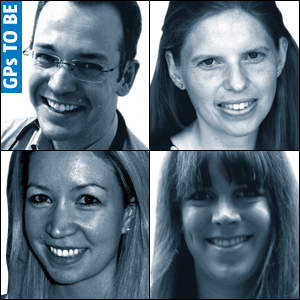Coming from a speciality like palliative medicine I can’t fail to appreciate the value of anecdotal evidence in helping to guide clinical management in the absence of reliable randomised controlled trials. Effective sharing of experiences in fields with little research investment can lead to improvements in practice and better clinical care for patients, and despite remaining a poor substitute for robust trials, can provide the opportunity for learning and advancement in practice which may not otherwise occur.
It also plays an important, but not always beneficial, role when we find our practice being altered by a single clinical experience which scared the sh*t out of us / went horribly wrong / pulled off a miracle. Sometimes we can’t help but be influenced by our own personal experiences, positive as well as negative, but perhaps we need to keep in mind the influence we should afford them in our everyday practice.
Where anecdotal evidence is definitely not helpful is when it is used as a reason or an excuse for doing something against accepted medical advice, and this is where my bug bear lies. If I hear one more smoker tell me, ‘my grandmother smoked 60 a day and lived to be 100’, or another pregnant woman say, ‘my Mum ate unpasteurised cheese and took Ibuprofen throughout her pregnancies and we all turned out ok’, I may have to shoot myself.
I can’t decide whether this approach signals a frightening lack of statistical understanding, an absence of respect for modern medicine or a desperate attempt to justify actions in order to continue a behaviour regardless. Trying to argue that the existence of a single individual who ‘got lucky’ somehow trumps carefully compiled scientific evidence would seem a rather futile task, however they all seem to do it with such confidence that it becomes rather hard to argue with.
I remember when my son was a few months old and I was stuck in the head-spinning world of new parenthood, I found myself having to make decisions on things I hadn’t appreciated were important (or even existed) before his arrival. Which car seat to buy? How to feed him? When to wean him? How to put him to sleep? As a medic, I found myself reverting to type and trying to gather as much information on the various subjects as I could in order to weigh it all up and come to some sort of evidenced based decision. At my regular coffee pit-stops with other new Mums these topics would come up and spark a bit of discussion but any debate was usually rapidly quashed by someone revealing a startling piece of anecdotal evidence that no one felt able to argue with. You can wrangle with a study, you can dispute an online review but when someone tells you their Mum’s opinion on a subject there really isn’t much room for disagreement without risking offence.
I sometimes find myself robotically repeating lifestyle advice to patients knowing full well that I can’t compete with the story of their octogenarian Uncle who has never done a minute’s exercise in his life and who drinks five pints of larger a night. If I had seen Uncle Bob in action I wonder, given the choice, whose advice I would follow. Ultimately people make their own choices and more often than not we all have to live with the consequences. I just hope that they’re making these decisions based on something a little more reliable than someone else’s extraordinary luck. Something we could do with bearing in mind when we find our clinical management being influenced by past mistakes or bad luck. Easier said than done.
Dr Laura O’Loghlen is an ST1 who lives in Cheltenham and works in Gloucestershire

















